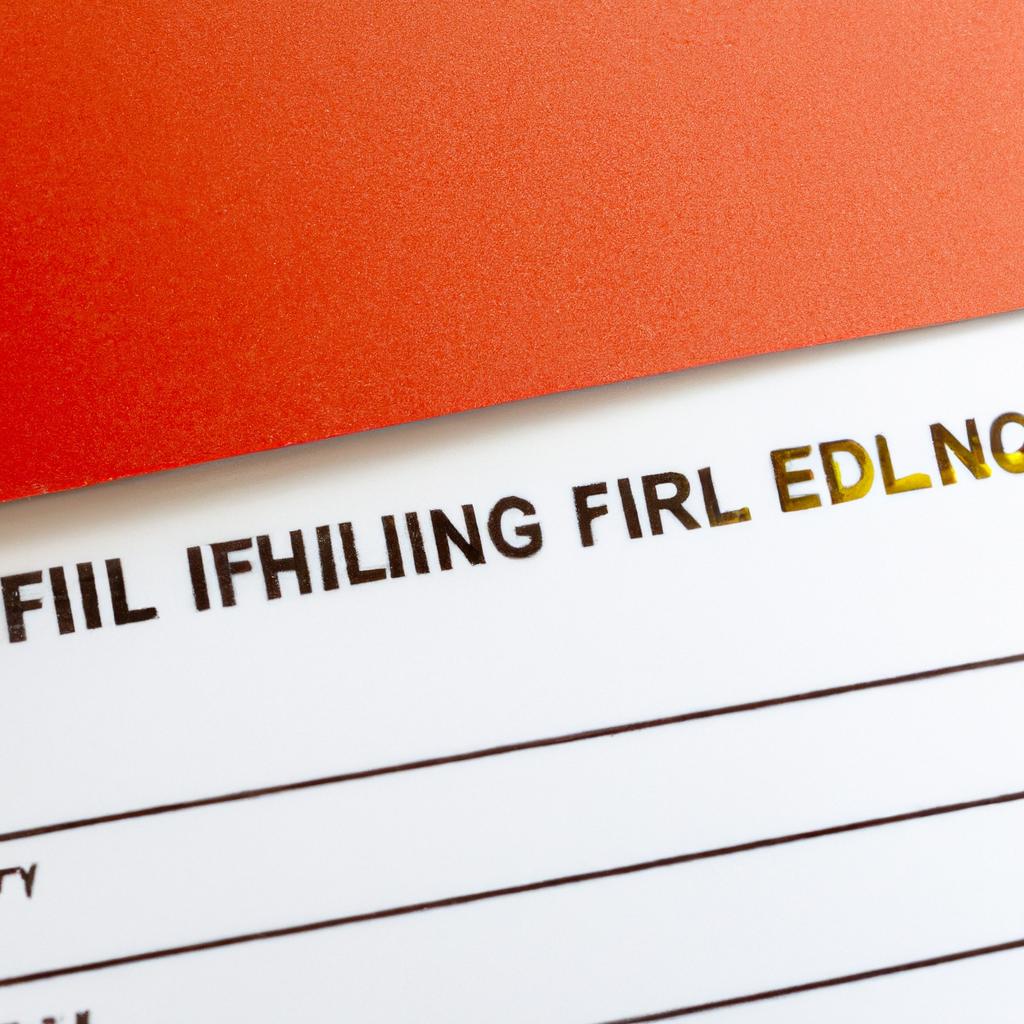Navigating the probate process can be a daunting task, especially when dealing with a small estate. Fortunately, there is a streamlined alternative to traditional probate procedures known as a small estate affidavit. In this article, we will discuss the ins and outs of filing a small estate affidavit, providing you with the knowledge and confidence to effectively manage the administration of a modest estate. As experienced practitioners in estate planning and probate law, Morgan Legal Group is here to guide you through this process with precision and expertise.
Understanding the Purpose of a Small Estate Affidavit
When it comes to navigating the complex world of estate planning and probate, can be crucial. A small estate affidavit is a legal document that can be used to expedite the transfer of assets from a deceased person’s estate to their heirs. This document is typically used when the value of the estate falls below a certain threshold, as determined by state law.
By filing a small estate affidavit, heirs can avoid the lengthy and costly probate process. This can be a huge relief during an already difficult time. Additionally, a small estate affidavit can help ensure that assets are distributed according to the deceased person’s wishes. For those looking to file a small estate affidavit, it is important to consult with an experienced estate planning attorney to ensure that the process is completed correctly and in accordance with state laws.

Determining Eligibility and Requirements for Filing
To file a small estate affidavit, it is crucial to first determine if you meet the eligibility requirements. In New York City, individuals may file a small estate affidavit if the deceased person’s estate meets certain criteria. The estate must have a total value of $50,000 or less, excluding real estate, and must not include any outstanding debts. Additionally, the deceased person must have passed away at least 30 days ago.
Once eligibility is established, the next step is to gather the necessary documentation and complete the small estate affidavit form. Required documents may include the death certificate, the deceased person’s Will (if applicable), proof of assets and debts, and any other relevant information. It is crucial to ensure all information provided is accurate and up to date. In completing the form, be sure to include all necessary details, such as the deceased person’s name, date of death, and the names of their heirs. After completing the form, it must be signed in the presence of a notary public before filing with the appropriate court.
Completing the Affidavit and Required Documentation
In order to file a small estate affidavit, it is crucial to ensure that you have completed all necessary documentation accurately. The first step is to gather all required documents, such as the deceased individual’s death certificate, any existing will, and a list of the deceased person’s assets and debts. It is important to provide detailed information about the assets and debts, including their estimated value and any outstanding balances.
Once you have all the necessary documentation, you can begin completing the small estate affidavit. This document will require you to provide information about the deceased person, their assets, debts, and beneficiaries. Make sure to fill out the affidavit accurately and thoroughly, as any errors or missing information could cause delays in the probate process. After completing the affidavit, you will need to sign it in front of a notary public to make it legally binding. Remember that each state has its own specific requirements for small estate affidavits, so it is important to research and comply with the laws in your jurisdiction.
Seeking Legal Assistance and Ensuring Compliance
Small Estate Affidavit:
Filing a small estate affidavit can be a straightforward process if done correctly. Here are some key steps to follow:
- Gather Required Documents: Make sure you have the deceased person’s death certificate, any existing will, and a list of assets and debts.
- Complete Affidavit Form: Fill out the small estate affidavit form with accurate information about the deceased person, their estate, and the heirs or beneficiaries.
- Have Affidavit Notarized: Sign the affidavit in front of a notary public to verify its authenticity.
- File Affidavit with the Court: Submit the completed and notarized small estate affidavit to the appropriate probate court along with any required supporting documents.
Table of Required Documents:
| Document | Purpose |
|---|---|
| Death Certificate | Proof of the deceased person’s passing |
| Existing Will | Guidance on estate distribution |
| List of Assets and Debts | Overview of the deceased person’s estate |
Q&A
Q: What is a small estate affidavit and when would I need to file one?
A: A small estate affidavit is a legal document that allows for the transfer of assets from a deceased person’s estate without going through the formal probate process. You would need to file one if the value of the estate is below a certain threshold set by your state’s laws.
Q: How do I determine if I am eligible to file a small estate affidavit?
A: Eligibility requirements vary by state, but typically you must be a surviving spouse, child, or close relative of the deceased person. The value of the estate must also fall below a specific monetary limit set by state law.
Q: What are the steps involved in filing a small estate affidavit?
A: The first step is to gather all necessary documentation, such as the death certificate and any relevant financial records. Next, you will need to fill out the affidavit form and have it notarized. Finally, you will submit the affidavit to the appropriate court or government agency.
Q: How long does it typically take to process a small estate affidavit?
A: The processing time can vary depending on the jurisdiction and the complexity of the estate. In some cases, the affidavit may be approved within a few weeks, while in others it may take several months.
Q: Are there any potential drawbacks to filing a small estate affidavit?
A: While the small estate affidavit process is generally quicker and less expensive than probate, there are some limitations. For example, creditors may still be able to make claims against the estate, and certain assets may not be transferable through this method.
Q: Can I file a small estate affidavit on my own, or do I need to hire an attorney?
A: In many cases, you can file a small estate affidavit without the assistance of an attorney. However, it may be helpful to seek legal advice, especially if you are unsure about the eligibility requirements or if there are complicating factors involved.
Wrapping Up
In conclusion, filing a small estate affidavit can be a straightforward process for those dealing with a loved one’s passing and limited assets. By following the steps outlined in this guide, you can navigate the legal requirements and ensure a smooth settlement of the estate. Remember to consult with a legal professional if you have any questions or concerns. We hope this article has been helpful in providing you with the necessary information to successfully complete this important task. Thank you for reading!







